The benefits of turmeric for dogs are many. In fact, turmeric is one of the most highly regarded and powerful medicinal herbs for fighting and reversing disease. It effectively treats arthritis and relieves inflamed joints and stiffness and soreness in the body. It is also an effective liver cleanser, digestive aid, antiseptic, antioxidant, pain reliever, wound healer, and kidney stone dissolver. The health benefits of turmeric are highly researched with over 16,000 peer-reviewed articles published on the many uses and benefits of turmeric (curcumin). What’s better is it can offer these wonderful benefits to both you and your dog.
This post contains affiliate links as explained in my Disclosure Policy.
In This Article
What is Tumeric (Curcumin)?
Turmeric belongs to the group of oldest cultivated spice plants in the south-east Asian countries and is a member of the ginger family. It comes from the Curcuma longa plant, which grows in India and other Southeast Asian countries. When the dried root of this plant is ground it forms a yellow powder which is why is it also called “golden powder.” The active substance found in the spice turmeric is curcumin which has antioxidant properties and many other benefits.
Turmeric Nutrition Facts
As per the USDA database, one tablespoon of ground turmeric (about 9.4 grams) contains approximately:
- 29.3 calories
- 6.31 grams carbohydrates
- 0.91 gram protein
- 0.305 gram fat
- 2.13 grams fiber
- 196 milligrams potassium
- 19.6 milligrams magnesium
- 15.8 milligrams calcium
- 5.17 milligrams iron
- 1.86 milligram manganese
- 0.1 milligram vitamin B6
- 0.066 milligrams vitamin C
What Are the Benefits of Turmeric for Dogs (and People Too)?
The benefits of turmeric for dogs and people are tremendous. The top benefits are as follows:
1. Fights Inflammation – Reducing inflammation is the most powerful benefit of curcumin, the yellow pigment in turmeric. In fact, curcumin is among the most effective anti-inflammatory compounds in the world. As such, it is good for all arthritic conditions.
2. Natural Pain Reliever – One of the more widely accepted properties of turmeric is its ability to manage pain. With its anti-inflammatory properties, this makes turmeric a good pain reliever. It can be used to relieve arthritis/joint pain, and pain associated with wound healing, post-operative pain, and general soreness in the body.
3. Improves Blood Vessel Health and Aids Circulation – Turmeric is a natural blood thinner and may slow or prevent blood clots that can lead to heart attacks and strokes.
4. Promotes Liver Health – Tumeric protects the liver against toxins and acts as a natural detox.
5. Has Anticancer Properties – Tumeric has been shown to stop the proliferation of rapidly dividing cancer cells.
6. May Lower Cholesterol Levels – Researchers show turmeric helps lower LDL – the bad cholesterol levels that affect the heart and liver health.
7. Natural Anti-Bacterial and Anti-Fungal – Turmeric can also help get rid of fungal infections such as ringworm. The anti-fungal properties of Turmeric were proved by a team of researchers who studied the effectiveness of Curcumin against 23 strains of fungi.
Additional Benefits of Turmeric for Dogs and People
8. May Reduce Depression Symptoms
9. Boosts Skin Health
10. May Help Manage Diabetes
11. Supports Weight Control and Combats Obesity
12. Supports Management of Inflammatory Bowel Disease
Turmeric Golden Paste Recipe
While there are many ways to incorporate turmeric into your dog’s daily diet, Golden Paste is a preferred method. I prefer to make my Golden Paste in a bigger batch which lasts for approximately 2 weeks in the refrigerator and extra can be stored in the freezer for future use.
Ingredients:
- 1 cup of turmeric powder
- 2 cups of filtered or spring water (may need a bit more to thin paste to desired consistency)
- 1/2 cup organic coconut oil
- 2 teaspoons freshly ground pepper from a pepper mill – increases absorption
- 1-1/2 teaspoons Ceylon cinnamon (optional)
Directions:
- Slowly warm water on low to medium heat.
- Mix in turmeric powder and stir 5-10 minutes until it begins to thicken into a paste consistency. If it’s too thick add a bit more water. If it’s too thin add a bit more turmeric.
- Next, mix in coconut oil.
- Lastly, add freshly ground black pepper and Ceylon cinnamon.
- Turn off heat and continually stir until everything is combined into a paste.
- Allow turmeric paste to cool before storing it in a glass jar with a tight fitting lid. I use a wide mouth canning jar.
- Keep this in the refrigerator and use as needed. It should be good for up to 2 weeks.
I suggest using a metal spoon to stir the paste and a glass container to store the paste as turmeric will stain. It is also important to quickly clean up after making the paste. Turmeric will stain wooden utensils, fingers, and other things it comes in contact with.
Golden Paste Uses
Simply spoon the recommended amount into your dog’s food. Or, you can let them lick it right off the spoon if you like.
People can take it this way too. You can also stir the paste into water, milk, tea, or juice. And, you can add it to scrambled eggs or even spread it on bread or toast.
How Much Turmeric is Safe to Give My Dog – How Much is Beneficial?
A general rule of thumb it’s approximately 1/4 teaspoon for every 10 pounds of body weight.
- 1/4 teaspoon daily – for dogs 20 – 30 lbs
- 1/2 teaspoon daily – for dogs 30-40 lbs
- 3/4 teaspoon daily – for dogs 40-50 lbs
- 1 tablespoon daily – for dogs 50-60 lbs
- 2 tablespoons daily – for dogs 90-100 lbs
Add the golden paste to your dog’s diet daily.
Alternate Ways to Add Turmeric to Your Dog’s Diet
If you don’t want to mess with making the golden paste, here are a few other delivery methods:
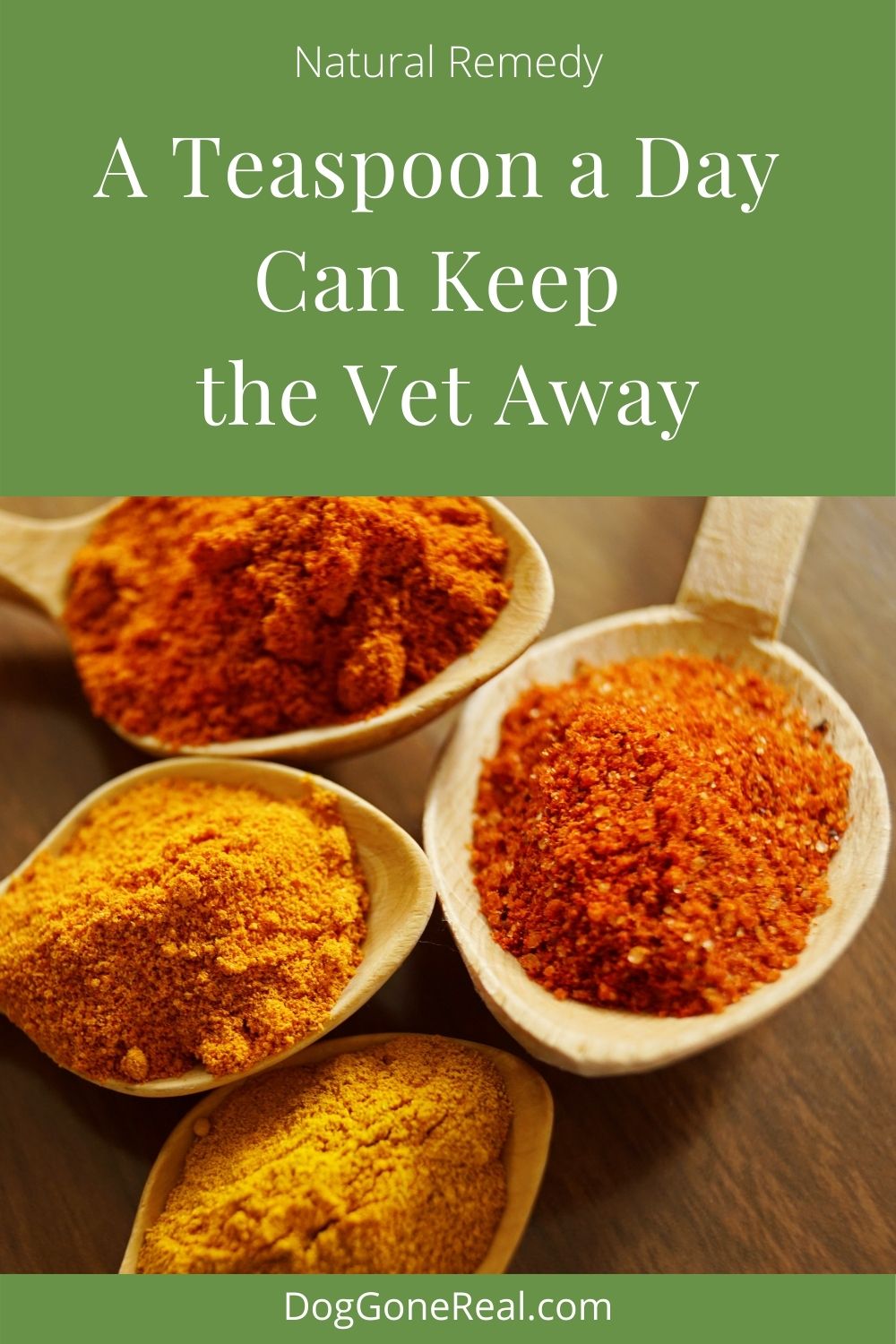
How to Clean Turmeric Stains
The beautiful golden color of turmeric packs a punch when it comes to staining. In most instances, soap and water will do the trick. For more stubborn stains a baking soda and water paste will work great. You can apply the cleaning paste to the stain and let it sit for a few minutes and then gently scrub with small, circular motions.
Precautions and Potential Side Effects
You may want to start out by adding a lower amount and then gradually build-up to the suggested daily amount because it can cause loose stool.
Dogs should not be given turmeric if they are scheduled for surgery, have gallbladder disease, diabetes, gastroesophageal reflux disease (GERD), hormone-sensitive tumors, and problems absorbing iron.
If you’re thinking about dietary supplements for your dog, as always, I recommend you talk with your veterinarian about what products would be most beneficial for your dog’s individual needs.
Sources:
Turmeric and Curcumin Benefits: Can This Herb Really Combat Disease? – by Dr. Axe
Turmeric for Dogs: Benefits of Turmeric for your Labrador
Powerhouse Plants That Can Prevent and Heal Disease in Pets – by Dr. Karen Becker
USDA Database – https://fdc.nal.usda.gov/fdc-app.html#/food-details/172231/nutrients

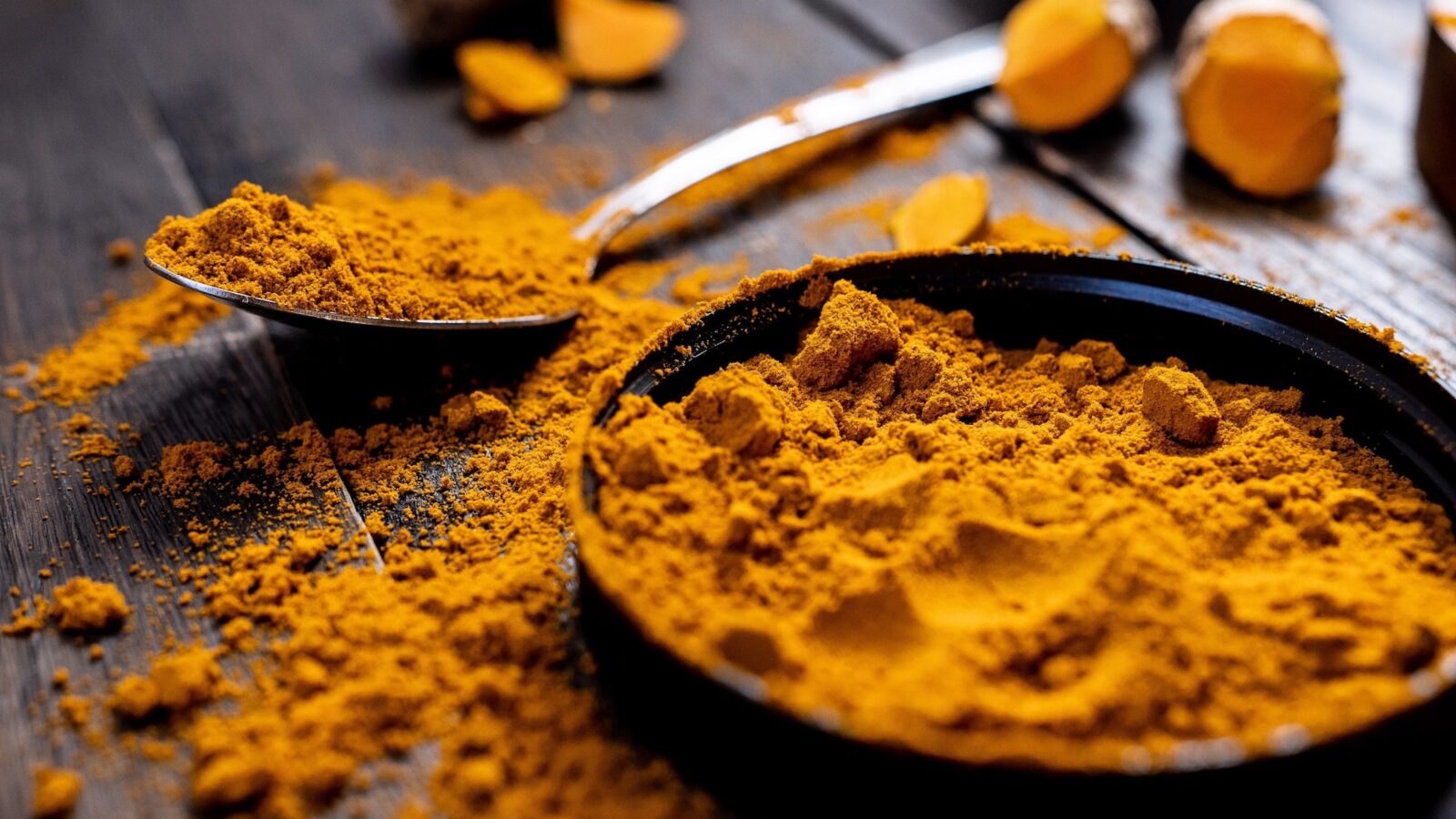
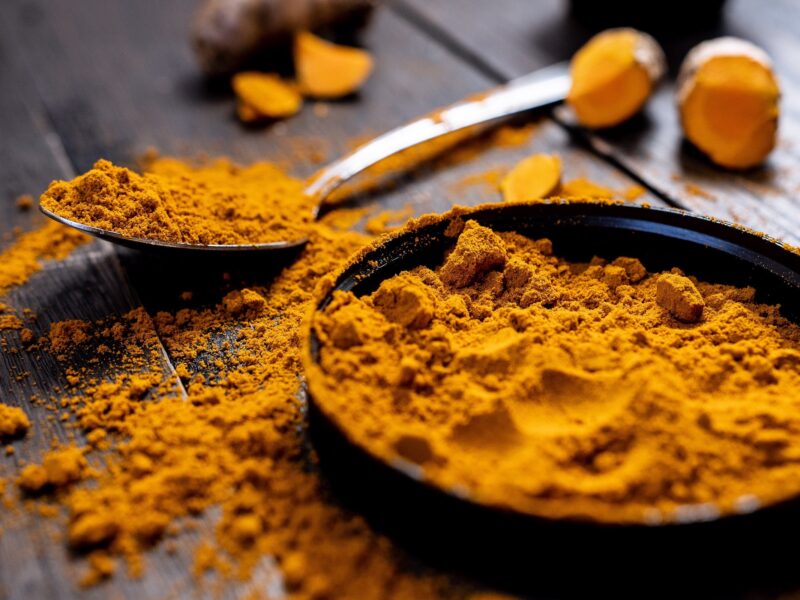
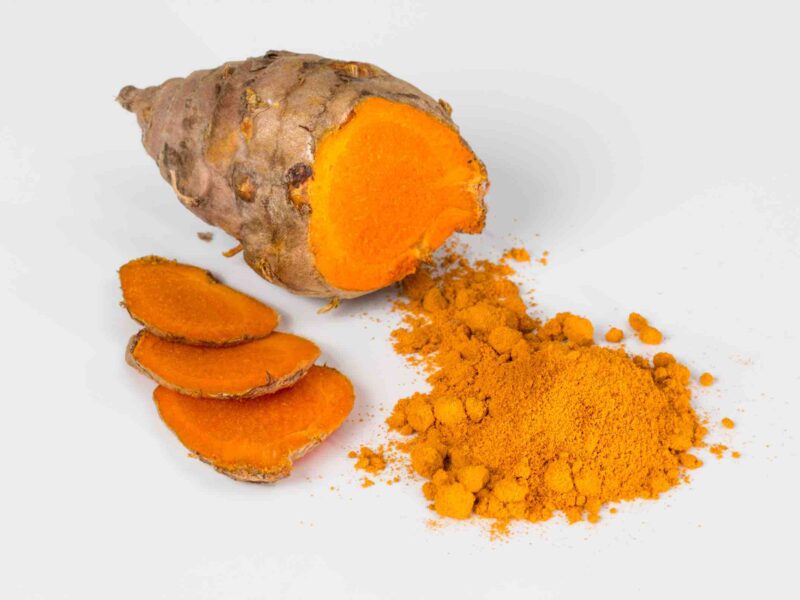


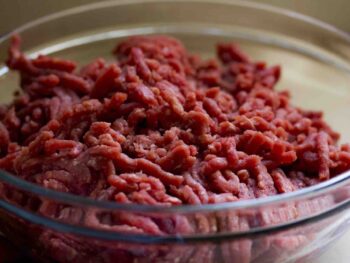
 10 Dog Friendly National Parks to Explore with Your Best Friend
10 Dog Friendly National Parks to Explore with Your Best Friend